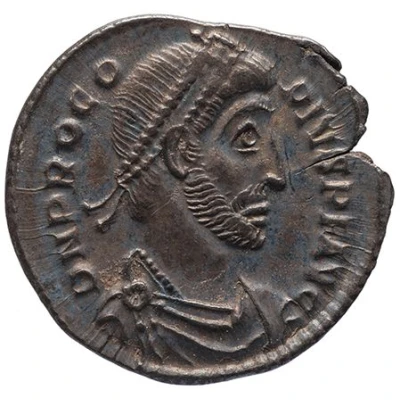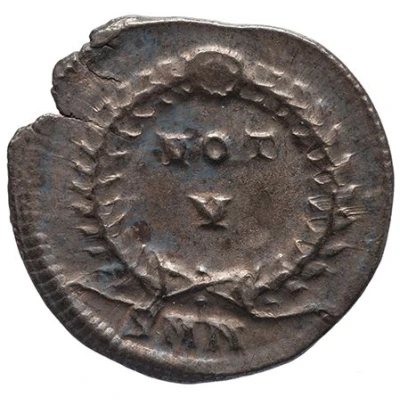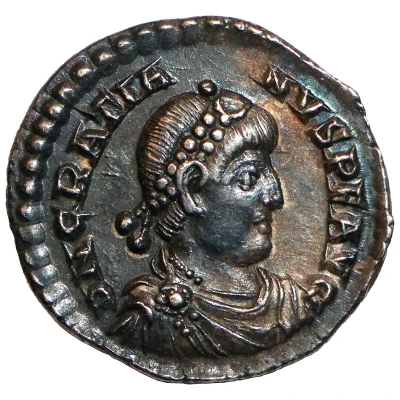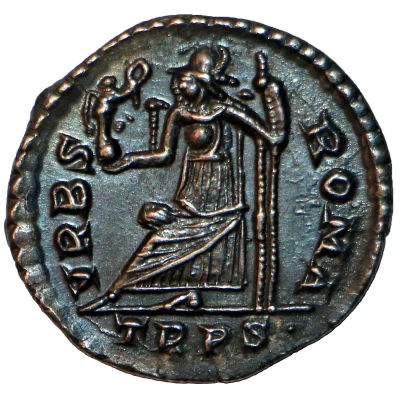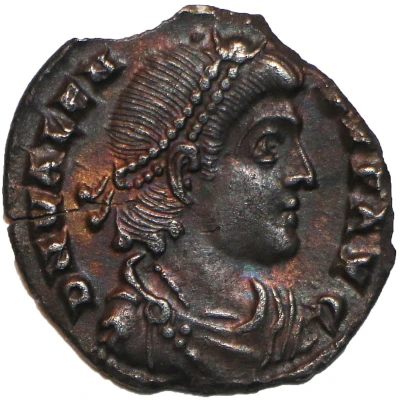
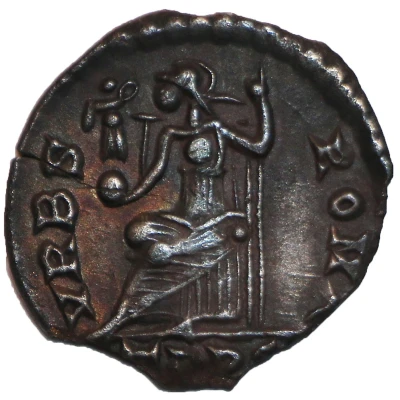

© John Conduitt (CC BY-SA)
Siliqua - Valens VRBS ROMA; Treveri
367 year| Silver | 1.7 g | 17 mm |
| Issuer | Rome › Roman Empire (27 BC - 395 AD) |
|---|---|
| Emperor | Valens (364-378) |
| Type | Standard circulation coin |
| Year | 367 |
| Value | Siliqua (1⁄24) |
| Currency | Solidus, Reform of Constantine (AD 310/324 – 395) |
| Composition | Silver |
| Weight | 1.7 g |
| Diameter | 17 mm |
| Shape | Round (irregular) |
| Technique | Hammered |
| Orientation | Coin alignment ↑↓ |
| Demonetized | Yes |
| Updated | 2024-10-04 |
| Numista | N#259531 |
|---|---|
| Rarity index | 89% |
Reverse
Victory seated left on a throne, holding Victory on a globe and sceptre.
Trier mintmark in exergue.
Script: Latin
Lettering: VRBS ROMA
Comment
Silver Roman siliqua of Valens (AD 364-378), dating to the period AD 367-375 (Reece period 19). VRBS-ROMA reverse type depicting Victory seated left on a throne, holding Victory on a globe and sceptre. Mint of TrierInteresting fact
The Siliqua - Valens coin was part of a series of coins issued during the reign of Emperor Valens (364-378 AD) and features the image of the goddess Victory on the reverse side. This coin was minted in Rome and was used as a standard circulation coin throughout the Roman Empire. The use of silver in the coin's composition was a significant change from previous coins, which were made of bronze or other base metals. The introduction of silver coins like the Siliqua - Valens helped to stabilize the Roman economy and paved the way for the widespread use of silver in future coinage.
